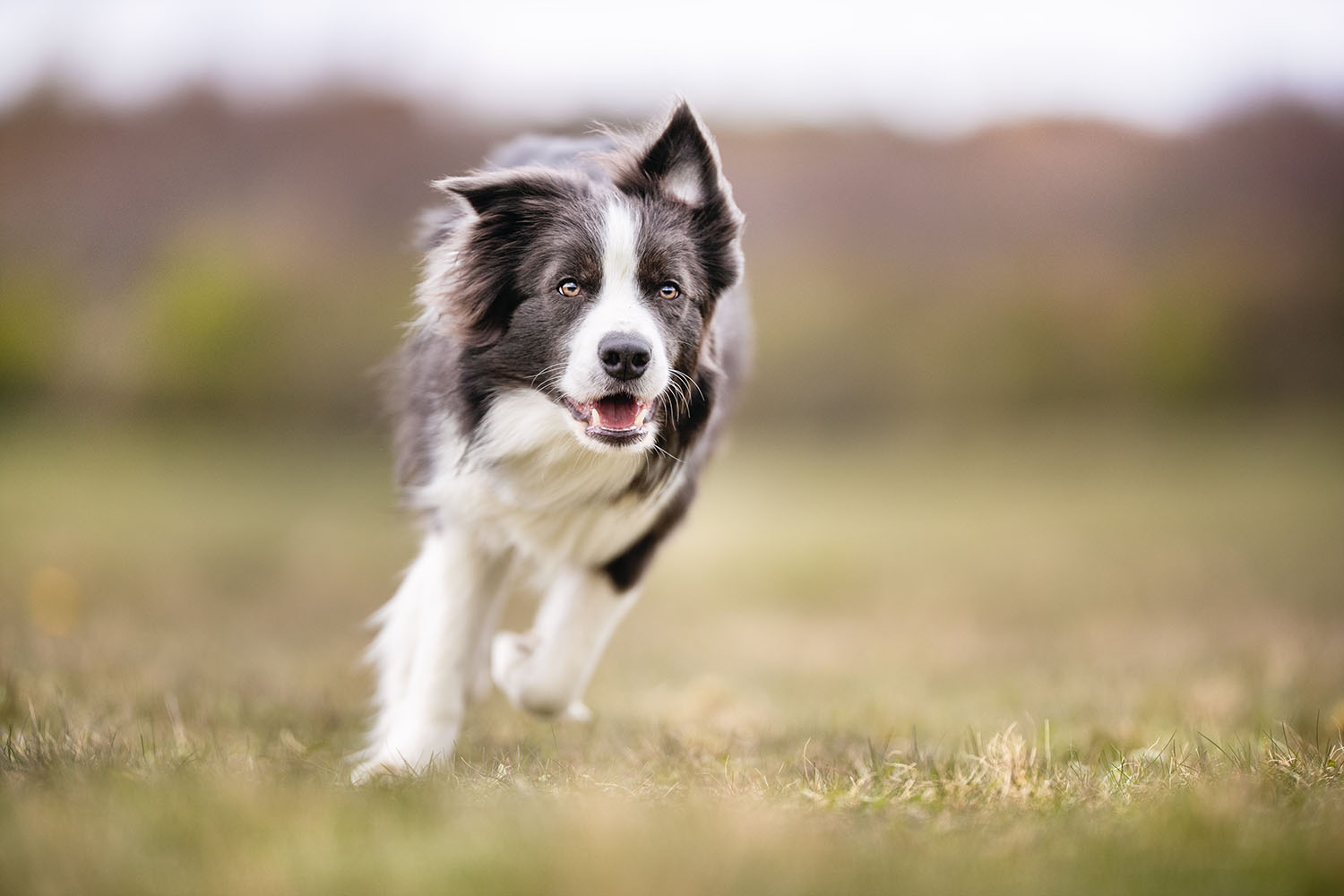- Calling your dog when there’s a good chance that they won’t come.
Unless it’s an emergency or your collie has a “bombproof” recall and is in the final stages of your border collie recall training, you should NEVER call him if it’s unlikely that he is not going to come back.
For instance, he has spotted a squirrel on the grass nearby. You have a split second to get his attention before he starts chasing. If you miss the opportunity before he takes off, then unless your dog is very well trained or the squirrel is the other side of a busy road, don’t call him. It is very unlikely that he is going to abandon the hugely exciting squirrel chase to return to you, even if you do have your best sausage slices with you as a reward.
Sometimes, if your collie has just found an interesting smell, he may not come back if you call him, especially in the early stages of recall training.
What does your dog learn if you do call him in this situation and he ignores you?
He is learning that when you call, he can ignore you. He will also learn that chasing squirrels is far more interesting than coming when you call. This isn’t what you want. We want your dog to believe that coming back to you when on a walk is the most exciting thing that is likely to happen, meaning that he is much more likely to come running when you call. We can only make him believe this by ensuring that he doesn’t experience the more-exciting squirrel-chasing, which leads on to our next point…
2. Letting your dog off the lead before your border collie recall training is complete.
This is something that I, and most other dog trainers, don’t do. If you know that there is the chance of the above happening, then we ensure that the dog never gets that opportunity.
Collies, especially collie puppies, will find a wide range of things very exciting while they are out and about. Their eyes will be picking up movement of anything – other animals, runners, cyclists, cars and buses, not to mention all the fascinating smells and sounds.
Only when you have worked through the border collie recall training process, building up distance and the level of distraction gradually, and you are 100% sure that he will come back when you call, should you let your dog off the lead in a public, unenclosed area. There are three main reasons why this is a bad idea:
- As in point one above, you run the risk of him discovering that it is more exciting NOT to come when called.
- If there is any risk of the dog being injured or injuring others by not returning immediately when called.
- Under the Dangerous Dogs Act 1991 you could be prosecuted if someone feels threatened by the behaviour of your dog, whether the dog’s intention is friendly or otherwise.
Long lines, very long leads made from a light material, are ideal for being able to keep control but also give your dog an element of freedom. Neoprene 10m lines are perfect and can be purchased for under £20. I’d recommend cutting off the handle on the end to ensure that it doesn’t catch on anything and letting the dog trail the line. If you do need to take control very quickly, having the dog on the line will enable you to do so.

3. Telling your dog off when he finally comes back after ignoring a recall cue.
However angry or frustrated you feel when your dog doesn’t return to you when you need him to, eventually he will come back. When he does, give him his treat and tell him he’s a really good dog. All he’ll remember is running back to you, and if you tell him off, he’ll think he is being told off for returning to you. Then next time he’ll leave it even longer before he comes back, if he comes back at all.
4. Calling your dog to do something unpleasant.
Calling your dog so you can put him in the bath or to put him on the lead at the end of a walk, are all quick ways of getting a young collie to learn not to come when you call him.
Whenever you give your border collie the recall cue, it needs to be followed by a positive experience. Otherwise why would he choose to come when you call him?
There are other ways of getting your dog in the bath. For instance, you could go into the kitchen, give him a treat then put a lead on him and walk him into the bathroom. Instead of calling him to put his lead on at the end of a walk, sit down somewhere on a park bench, give him some fuss, put on his lead, share a snack, then walk to the car. Vary what you do so that it doesn’t become a pattern that enables the dog to predict the end of the walk. Giving him his dinner once he gets to the end of a walk is another way of ensuring that you don’t have a border collie recall in which the dog stays tantalisingly out of reach at the end of a walk.
5. Not carrying treats or toys while out walking.
Think about this from your dog’s point of view. He is out enjoying all the sights and smells, running from one interesting thing to another. Then you call him. Why would he want to run back to you to get a quick stroke or a “good dog”?
Realistically, he might do some of the time if there is nothing more interesting going on, but if anything exciting comes up, he will not be rushing back.

